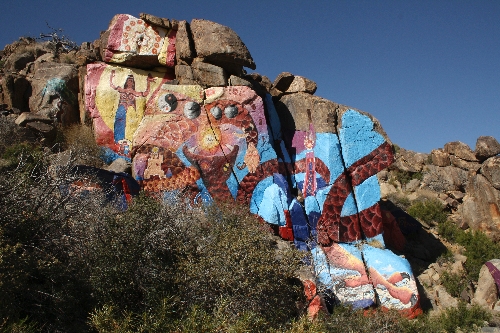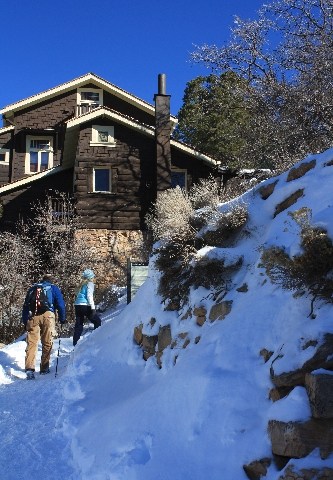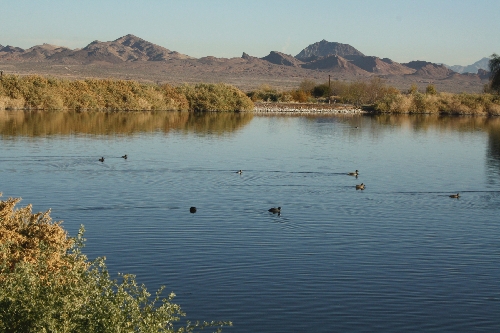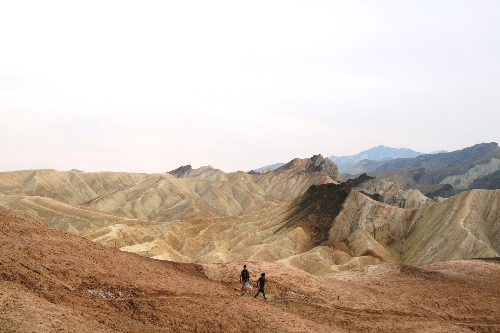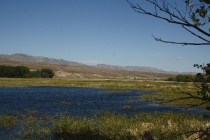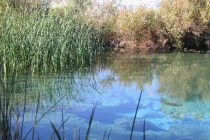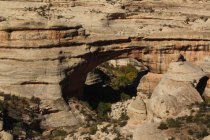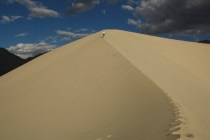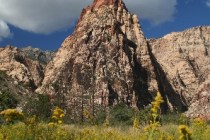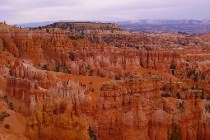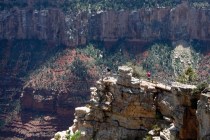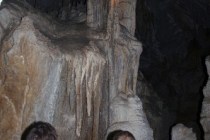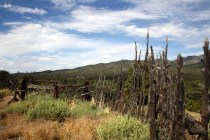The last echo of a mining boom died long ago in this old village in Northern Arizona, yet it’s no ghost town, still boasting roughly 250 residents. But it’s not your stereotypical small town either, for individualism runs rampant, and there’s even some important public art here.
- Home
- >> Local
- >> Local Columns
Deborah Wall

Deborah Wall is the author of "Great Hikes, a Cerca Country Guide," and "Basecamp Las Vegas: Hiking the Southwestern States," published by Stephens Press. Email: deborabus@aol.com
Now is a great time of year to head out to Lake Mead National Recreation Area and enjoy the Historic Railroad Tunnel Trail.
A New Year’s resolution you can carry out is to visit one of the nearby national parks with which our region is so richly blessed. One of the best for winter months is the South Rim of the Grand Canyon.
At this busy time of year, it’s good to keep in mind an outdoor destination close enough that it won’t require much time and preparation. Henderson Bird Viewing Preserve is just such a place — an oasis of natural peace hidden close to the urban bustle of the Las Vegas Valley.
This is the perfect time of year to get over to Death Valley National Park and hit some of the badland trails. One especially suited for winter is the hike from Zabriskie Point to Golden Canyon.
Pahranagat National Wildlife Refuge was established in 1963 to provide a wintering habitat for migratory birds including a large variety of waterfowl. “Pahranagat” is a Paiute word meaning “valley of shining water.” The refuge encompasses about 5,380 acres of lakes, cattail marshes, wet meadows, riparian habitats and even desert uplands.
Ash Meadows National Wildlife Refuge serves at least two important functions: Preserving rare creatures and plants, and preserving the sanity of urban visitors by surrounding them with the beauty of green wetlands, glimpses of small fish darting through natural pools, and the sound of birdsong.
Some of the tallest sand dunes in North America can be found in the remote and extreme northern section of Death Valley National Park, California. The Eureka Dunes, in the enclosed Eureka Valley, have a base elevation of about 3,000 feet, and from there, they rise up nearly 700 feet more. The formation is about three miles long from north to south and one mile wide.
With the temperatures in our region finally cooling off, now is a good time to head out to Red Rock Canyon National Conservation Area. There are many canyons to explore in the park but Pine Creek Canyon should be tops on your short list.
If you have ever aspired to hike the world-famous Zion Narrows, over the next month or so is an ideal time to do so. Water and air temperatures remain as pleasant as they’ll ever be, and the threat of flash flooding is lower than the last couple of months.
Along the eastern rim of Utah’s Paunsaugunt Plateau lies Bryce Canyon National Park, a visual feast for the eyes. Standing along the park’s rim, visitors are treated to a multicolored landscape of natural spires, pinnacles and pillars called hoodoos. They got their name because their upright shape, with a little imagination, suggests humanoid or even supernatural beings.
If a visit to the Grand Canyon National Park is on your summer schedule, I recommend heading to the canyon’s North Rim rather than the better-known and thus more crowded South Rim. The North Rim affords classic views just as stunning as those visible from the South Rim but you get to enjoy them in cooler weather. Summer daytime high temperatures on the North Rim average in the 70s. And nighttime lows drop to the 40s, making good sleeping weather for campers.
Great Basin National Park doesn’t get its fair share of visitors, but that’s all the better for the enlightened few who get to enjoy it without fighting any crowds. Deep summer is the best time to go there, when its high elevation provides the cool temperatures so longingly sought by hikers and campers from Southern Nevada. Nevada’s only national park, it offers plenty to do.
One benefit of living in Southern Nevada is the opportunity to explore little-traveled back roads winding their way to uncrowded outdoor adventures. One of the best is the Mormon Well Road, originally a pioneer wagon trail on what is now the Desert National Wildlife Refuge.



